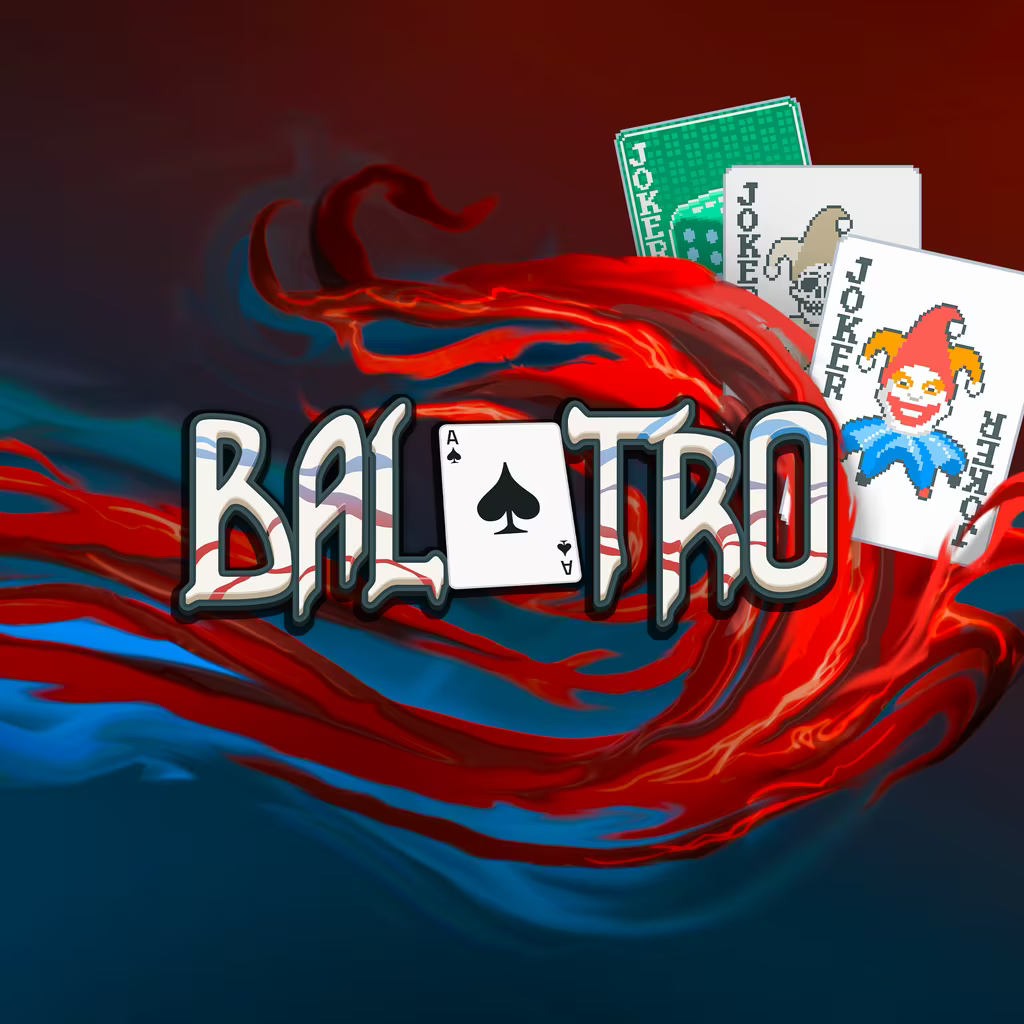Every so often, you come across a game that completely takes hold of your attention and destroys your idle time. For me, that game has been Balatro, a wonderful single player, deck-building roguelike game by indie developer LocalThunk.
Despite its inspirations from playing card games, this reimagined version of Poker requires very little knowledge of the original and contains no actual gambling. Players deal different poker hands from their held cards in order to score virtual chips, with poker rules determining their strength; a full house earns more than a flush, a flush earns more than a straight, and so on. Your round score is determined simply with the formula X times Y: your chips times mult—short for multiplier—and the cards you play affect both numbers.
Players must beat steadily increasing chip requirements—called Blinds—over a total of eight levels, called Antes, with a limited number of hands and discards available each round. Hands are played alongside a repertoire of special joker cards, which create new rules for your run, and you usually have up to five in play at a time. Often they provide useful multipliers to your score based on met conditions or manipulate the deck, and the real sauce of the game is discovering how they synergize with each other in different ways. After beating a blind, you’re given an opportunity to visit the shop, where you can spend your winnings on various consumable cards to strengthen your deck and swap out your jokers for new ones.
Balatro is part of the infamous genre of “number go up”, alongside games like Cookie Clicker and Universal Paperclips, but it requires strategy and thoughtful decision making in order to succeed. Players carry a limited amount of consumables and jokers, so the decision to keep one card over the other in the hope of encountering something better later is a constant gamble.
As you play Balatro, you slowly learn how to shift the odds to be in your favor, and it is a beautiful feeling once you get a strategy that sticks.

Balatro is generally easy to learn for newcomers, but the game still holds plenty of complexity and difficulty for more experienced players. After completing the first eight antes, you can continue your run in endless mode and see how far your build scales. Additionally, as you play you gradually unlock different starting decks with their own gimmicks, like starting with different cards or having extra joker capacity. That’s not to mention there are also eight tiers of stakes that you can add onto your run for extra difficulty, with a variety of effects like steeper blind scaling and rental jokers that expire after an amount of rounds.
The game also has additional content in the form of the Friends of Jimbo updates, which add free card skins that let you customize the face cards of your deck based on various franchise collaborations.
Balatro contains loads of accessibility features, including alternative high contrast cards, something colorblind players can appreciate. Players can also disable the swirling background if they so choose and change the scoring calculation speed, alongside other helpful options.
If you’ve been convinced to play, it’s available on Steam for $15, most consoles, mobile, and Steam Deck, with no in-app purchases. Balatro is also available as part of Apple Arcade, if you subscribe to that.
Balatro was nominated for the 2024 Game Awards in December, alongside large triple-A titles like Elden Ring and Astro Bot. In my opinion, this wonderful indie game deserves the spot in the big leagues. Balatro takes an initial simple concept and takes advantage of its mechanics’ malleability and builds on them with an infinite amount of replayability.
Before you know it, three hours are gone and you’ll be all in.












